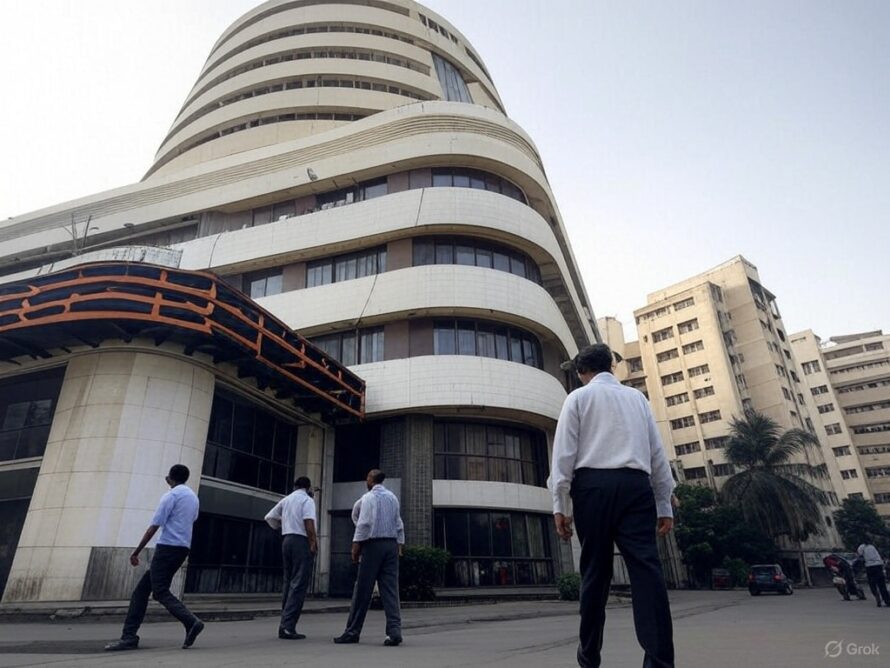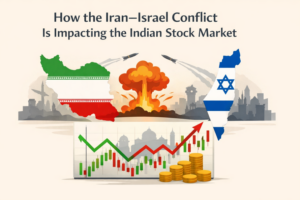Top 10 Biggest Indian Stock Market Scams That Shook the Nation

India’s financial markets have witnessed remarkable growth, but they’ve also been scarred by massive scams that exploited loopholes, deceived investors, and rattled the economy. Here’s a look at the 10 biggest stock market scams in Indian history, each a cautionary tale of greed and oversight failure.
1. Harshad Mehta Scam
Harshad Mehta, dubbed the “Big Bull,” manipulated the stock market in 1992 by siphoning bank funds to inflate stock prices, amounting to ₹4,000 crore. His scheme collapsed, crashing the market and exposing banking system flaws. It remains one of India’s most infamous financial frauds.
2. Ketan Parekh Scam
In the late 1990s, Ketan Parekh rigged tech stock prices using borrowed funds, causing a ₹1,000 crore scam. The market crashed in 2001 when his pump-and-dump scheme unraveled. He was banned from trading, leaving investors in ruin.
3. Satyam Scam
In 2009, Satyam’s founder Ramalinga Raju admitted to faking ₹7,000 crore in profits, shocking corporate India. The country’s largest corporate fraud led to its sale to Tech Mahindra. It highlighted the need for stricter auditing standards.
4. NSEL Scam
The National Spot Exchange Ltd promised high returns but defrauded investors of ₹5,600 crore in 2013 with nonexistent commodities. Promoter Jignesh Shah’s arrest followed the Ponzi-like collapse. It shook trust in commodity trading platforms.
5. Saradha Group Scam
Saradha Group’s chit fund scam lured 1.7 million depositors in West Bengal with fake promises, collecting ₹2,500 crore. The 2013 collapse jailed founder Sudipta Sen and sparked political uproar. It exposed the vulnerability of small investors.
6. Sahara India Pariwar Scam
Sahara illegally raised ₹24,000 crore through debentures, defying SEBI rules. Ordered to refund investors in 2012, it stalled with claims of fake depositors, landing Subrata Roy in jail. The saga underscored regulatory challenges.
7. UTI Scam
In 2001, Unit Trust of India’s flagship scheme lost ₹4,800 crore due to reckless investments, freezing redemptions. The government-backed fund’s failure shattered public trust. It marked a turning point for mutual fund reforms.
8. Karvy Stock Broking Scam
Karvy misused client securities worth ₹2,300 crore in 2019, pledging them for loans without consent. SEBI banned the firm after the fraud surfaced. It revealed gaping holes in brokerage oversight.
9. IPO Demat Scam
In 2005, fraudsters like Roopalben Panchal used fake demat accounts to corner ₹300 crore in IPO shares, cheating retail investors. SEBI cracked down, tightening allotment rules. The scam exposed IPO process weaknesses.
10. Nirav Modi Scam
Nirav Modi fled India after defrauding Punjab National Bank of ₹14,000 crore using fake letters of undertaking in 2018. The scam triggered a global manhunt and banking reforms. It remains a stark reminder of systemic failures.
Conclusion
These scams, spanning decades, reveal a pattern of exploitation, from stock manipulation to corporate deceit. They’ve driven regulatory overhauls, yet the challenge of safeguarding investors persists. Each scandal is a lesson in vigilance for India’s financial future.
Disclaimer
The stocks mentioned in this article are not recommendations. Please conduct your own research and due diligence before investing. Investment in securities market are subject to market risks, read all the related documents carefully before investing. Please read the Risk Disclosure documents carefully before investing in Equity Shares, Derivatives, Mutual fund, and/or other instruments traded on the Stock Exchanges. As investments are subject to market risks and price fluctuation risk, there is no assurance or guarantee that the investment objectives shall be achieved. Lemonn (Formerly known as NU Investors Technologies Pvt. Ltd) do not guarantee any assured returns on any investments. Past performance of securities/instruments is not indicative of their future performance.







